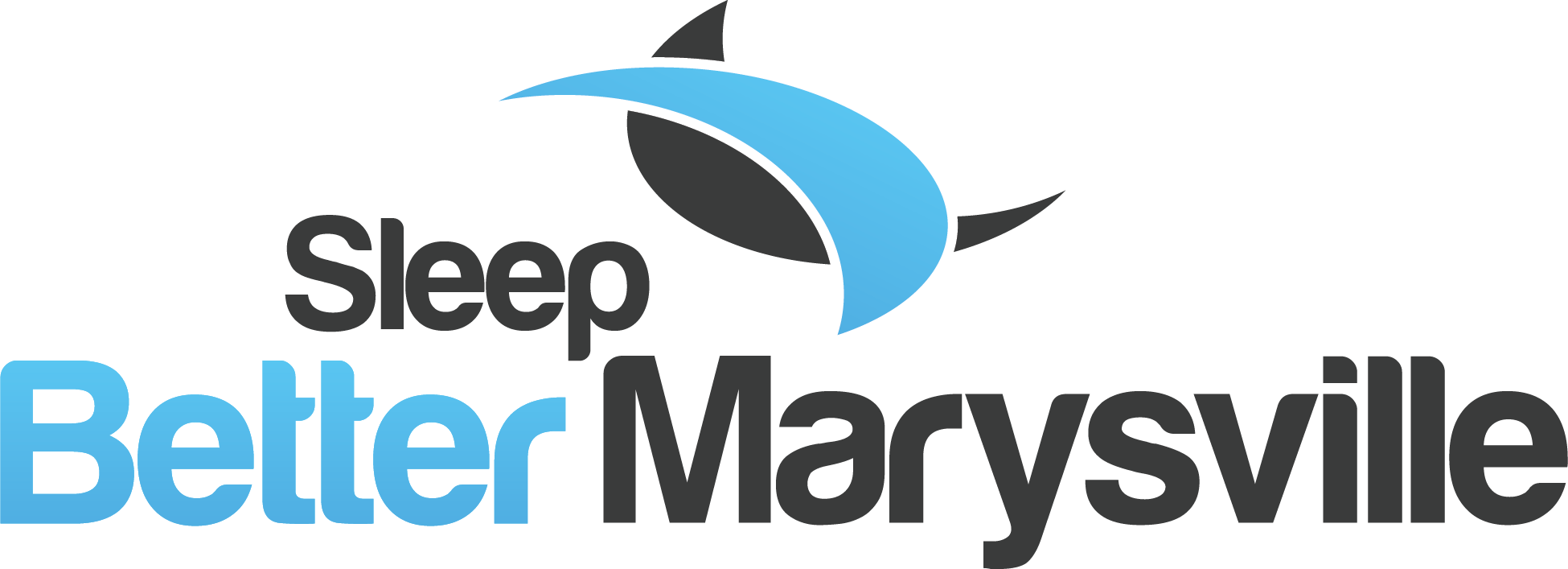Sleep apnea affects millions of people worldwide and can significantly impact sleep quality and overall health. One of the most concerning effects of sleep apnea is its impact on daytime productivity and alertness. People with sleep apnea often experience disrupted sleep, leading to fatigue, difficulty concentrating, and other challenges that affect their ability to function at their best during the day. Understanding the connection between sleep apnea and daytime performance is crucial for individuals looking to improve their sleep and productivity levels.
Understanding Sleep Apnea and Its Impact on Sleep Quality
Sleep apnea is a disorder where breathing stops temporarily during sleep, causing disruptions that can last several seconds and occur multiple times. This affects sleep quality, leaving individuals tired even after a night’s rest.
What Is Sleep Apnea?
Sleep apnea is a condition where breathing repeatedly stops and starts during sleep. The most common type, obstructive sleep apnea (OSA), occurs when throat muscles relax too much, blocking airways and causing reduced oxygen levels and frequent awakenings, often unnoticed by the person.
Common Types of Sleep Apnea (Obstructive, Central, and Complex)
While obstructive sleep apnea (OSA) is the most prevalent form, other types exist. Central sleep apnea occurs when the brain fails to send the correct signals to breathing muscles. In contrast, complex sleep apnea, also known as treatment-emergent central sleep apnea, involves a combination of both obstructive and central apneas.
Each type of sleep apnea leads to interruptions in the sleep cycle, making it difficult for the body to enter deeper, restorative stages of sleep. Individuals with sleep apnea may struggle with daytime sleepiness, low energy levels, and reduced focus without quality sleep.
How Sleep Apnea Affects Your Sleep Cycle
During a typical sleep cycle, a person moves through various stages of sleep, including light sleep, deep sleep, and REM sleep. Deep sleep and REM sleep are critical for restorative rest and brain function. Sleep apnea disrupts this cycle by repeatedly waking the person as their body attempts to resume normal breathing. As a result, the individual spends less time in these crucial sleep stages, leaving them tired and less alert the next day.
The lack of sufficient restorative sleep due to sleep apnea is one of the primary reasons for daytime fatigue and reduced productivity. This disruption not only affects physical health but also profoundly affects cognitive function, mood, and overall well-being.
The Connection Between Sleep Apnea and Daytime Fatigue
One of the most noticeable effects of sleep apnea is chronic fatigue. Due to the repeated interruptions in breathing during the night, individuals with sleep apnea often don’t get enough deep, restorative sleep. As a result, they may feel exhausted during the day, even after a whole night’s sleep. This persistent fatigue can interfere with various aspects of life, including work, social interactions, and overall quality of life.
Interrupted Sleep and Its Effect on Energy Levels
When the body experiences frequent interruptions to its sleep cycle, it cannot enter deep sleep stages essential for physical and mental recovery. Deep sleep is crucial for tissue repair, hormone regulation, and restoration. Without adequate deep sleep, individuals with sleep apnea often wake up feeling exhausted, regardless of the number of hours they spend in bed.
These interruptions can make it challenging to maintain consistent energy levels throughout the day. People with sleep apnea may struggle to stay awake during work hours, especially in the afternoon. The constant drain on energy can affect both professional and personal life, leading to decreased productivity and an increased likelihood of burnout.
How Poor Sleep Quality Leads to Chronic Fatigue
The link between poor sleep quality and chronic fatigue is well-documented. In individuals with untreated sleep apnea, the frequent pauses in breathing result in an incomplete sleep cycle. Each time the body is briefly awakened to resume normal breathing, it prevents the individual from reaching the more profound, restorative stages of sleep. Over time, this disruption leads to a cumulative sleep deficit, resulting in chronic fatigue.
Chronic fatigue can also have a snowball effect. As individuals become more tired, they may have difficulty staying motivated and productive, further contributing to feelings of exhaustion. Without proper treatment, this fatigue cycle can persist, affecting sleep quality and overall health and well-being.
Addressing sleep apnea and its effects on sleep quality can help individuals improve their daytime energy levels and reduce feelings of fatigue. The following section will explore how sleep apnea can impair focus and concentration, further affecting productivity.
How Sleep Apnea Impairs Focus and Concentration at Work
Sleep apnea’s effect on daytime alertness extends beyond just feeling tired. One of the more subtle but impactful consequences is its effect on cognitive function, including focus, concentration, and memory. Poor sleep quality caused by disrupted breathing during the night can impair the brain’s ability to perform essential tasks during the day, especially in demanding work environments.
Cognitive Decline Due to Sleep Deprivation
Sleep is essential for cognitive processes such as learning, problem-solving, and memory consolidation. When sleep apnea prevents the body from entering the deeper stages of sleep, the brain does not have enough time to restore these functions properly. As a result, individuals with untreated sleep apnea may experience cognitive decline, including difficulty processing information and reduced ability to think clearly.
Studies have shown that chronic sleep deprivation can lead to issues with decision-making, learning, and even long-term memory retention. This makes it difficult for individuals with sleep apnea to stay sharp and focused, especially during tasks requiring high attention levels or complex thought processes.
Increased Risk of Errors and Mistakes
In addition to difficulty concentrating, sleep apnea can increase the likelihood of making workplace mistakes. Lack of sleep affects reaction time and judgment, leading to a higher chance of errors, missed deadlines, and poor decision-making. These mistakes can have serious consequences in professions requiring attention to detail, such as healthcare, finance, or engineering.
The inability to focus effectively and increased mental fatigue often results in reduced productivity. Whether they forget essential tasks, miss key details, or make unnecessary errors, individuals with sleep apnea may find that their performance suffers significantly due to a lack of restful sleep.
Difficulty Staying Engaged in Tasks
Another common issue for those suffering from sleep apnea is the difficulty of staying engaged in tasks for extended periods. When the brain is not well-rested, individuals may find it harder to remain attentive, leading to reduced efficiency in their work. Tasks requiring sustained concentration, such as reading, writing reports, or participating in meetings, can become more challenging. This lack of engagement hampers productivity and can lead to frustration and stress.
The overall effect on a person’s professional life can be profound, as ongoing concentration issues can interfere with job performance and career advancement.
In the next section, we will discuss how sleep apnea affects mood and motivation, two crucial factors influencing overall productivity.
The Role of Sleep Apnea in Mood and Motivation
Sleep apnea’s impact on mood and motivation is often overlooked, but it plays a significant role in how an individual approaches tasks and interacts with others throughout the day. Poor sleep quality can lead to irritability, anxiety, and a general sense of low mood, all of which affect both personal and professional life.
How Sleep Apnea Contributes to Irritability and Mood Swings
Sleep apnea disrupts the sleep cycle, preventing restful sleep and impacting mood stability. Over time, this lack of rest can lead to irritability, mood swings, and even depression. These emotional changes can be particularly challenging in the workplace, where staying calm and focused is essential for success. Studies show that sleep deprivation, such as sleep apnea, is linked to increased stress and anxiety. As fatigue builds, individuals struggle to manage stress, leading to stronger emotional reactions and difficulty dealing with daily challenges. This creates a cycle where poor mood further reduces productivity, worsening fatigue, and emotional state.
Lack of Sleep and Decreased Motivation to Complete Tasks
In addition to affecting mood, sleep apnea can also reduce motivation. When a person is constantly exhausted due to poor sleep, finding the energy or desire to complete even basic tasks can be challenging. Motivation levels are often lowest during the afternoon when fatigue from inadequate sleep peaks.
For people with sleep apnea, this lack of motivation can lead to procrastination, missed deadlines, and decreased performance in the workplace. The mental and emotional toll of untreated sleep apnea can diminish the drive to achieve goals and perform well, leaving individuals feeling overwhelmed and unproductive.
Strategies to Improve Productivity for Those with Sleep Apnea
While sleep apnea can significantly affect daytime productivity and alertness, the good news is that effective strategies and treatments are available to manage the condition and improve overall functioning. By addressing sleep apnea and making lifestyle changes, individuals can regain control of their energy levels, mood, and cognitive performance during the day.
Diagnosing Sleep Apnea Early
The first step in improving productivity is accurately diagnosing sleep apnea. Many people with the condition are unaware of their symptoms, such as loud snoring, choking, or gasping for air during the night. If left untreated, sleep apnea can lead to chronic fatigue, difficulty concentrating, and impaired job performance.
If someone suspects they may have sleep apnea, they should consult a healthcare provider for a sleep study, which can be conducted in a sleep clinic or at home. Early diagnosis is key to preventing long-term complications and improving sleep quality, which can help restore daytime productivity and overall well-being.
Treatment Options to Alleviate Symptoms (CPAP, Lifestyle Changes, etc.)
There are several treatment options available for individuals with sleep apnea, ranging from lifestyle changes to medical interventions.
- Continuous Positive Airway Pressure (CPAP): The most common and effective treatment for obstructive sleep apnea is the use of a CPAP machine. This machine keeps the airways open by delivering a continuous flow of air through a mask worn during sleep. This treatment can significantly reduce the frequency of apneas and improve overall sleep quality, leading to better daytime alertness and productivity.
- Lifestyle Changes: Certain lifestyle adjustments can also help manage sleep apnea symptoms. These include maintaining a healthy weight, avoiding alcohol or sedatives before bedtime, sleeping on one’s side, and establishing a consistent sleep schedule. These changes can reduce the severity of sleep apnea and improve sleep quality over time.
- Oral Appliances: Dental devices (mandibular advancement devices) can help reposition the jaw and tongue to prevent airway blockages during sleep for individuals with mild to moderate sleep apnea. These devices are handy for those who cannot tolerate CPAP therapy.
- Surgery: In some cases, surgery may be recommended to remove excess tissue from the throat or to correct structural issues contributing to sleep apnea. This option is typically considered when other treatments have not been effective.
Creating a Sleep-Friendly Environment
In addition to medical treatments, creating a sleep-friendly environment can enhance the quality of rest for individuals with sleep apnea. This includes:
- Reducing Noise and Light: A quiet, dark environment promotes better sleep. Using blackout curtains and white noise machines can help eliminate environmental disruptions.
- Comfortable Bedding: A supportive mattress and pillow can prevent discomfort and promote better sleep posture, helping to reduce the severity of sleep apnea symptoms.
- Maintaining a Cool Temperature: A cooler room temperature is conducive to better sleep. Keeping the bedroom temperature between 60-67°F is recommended for optimal rest.
By combining medical treatments with lifestyle changes and a sleep-friendly environment, individuals with sleep apnea can experience significant improvements in their sleep quality and daytime productivity.

